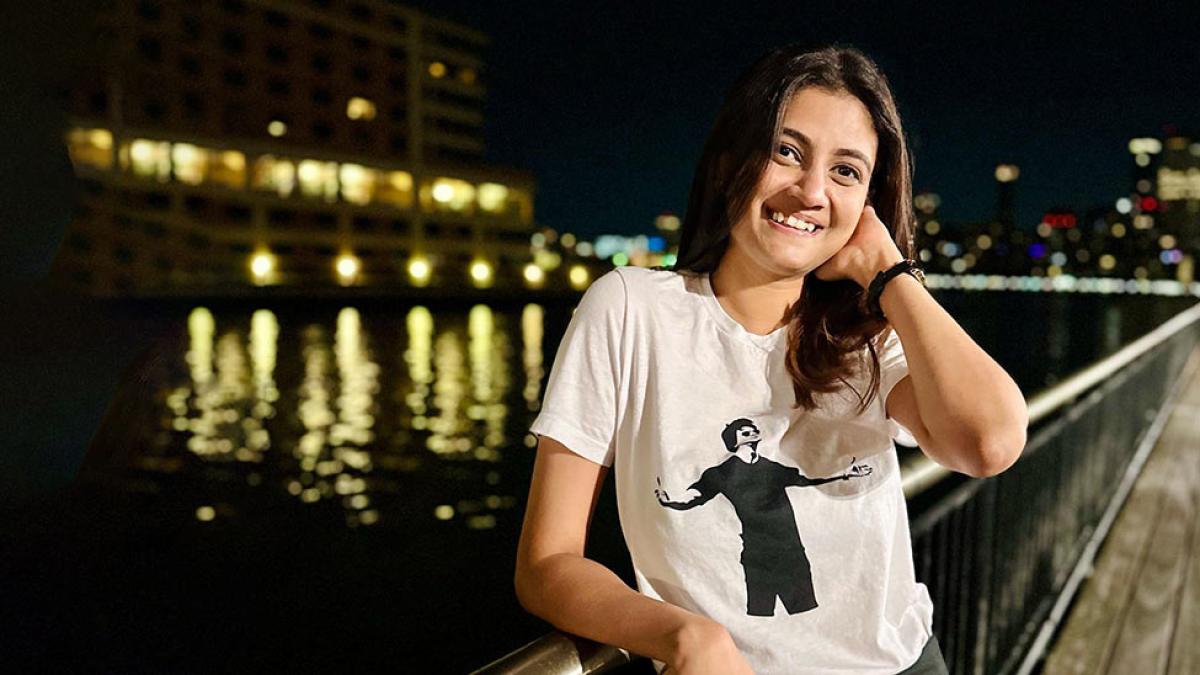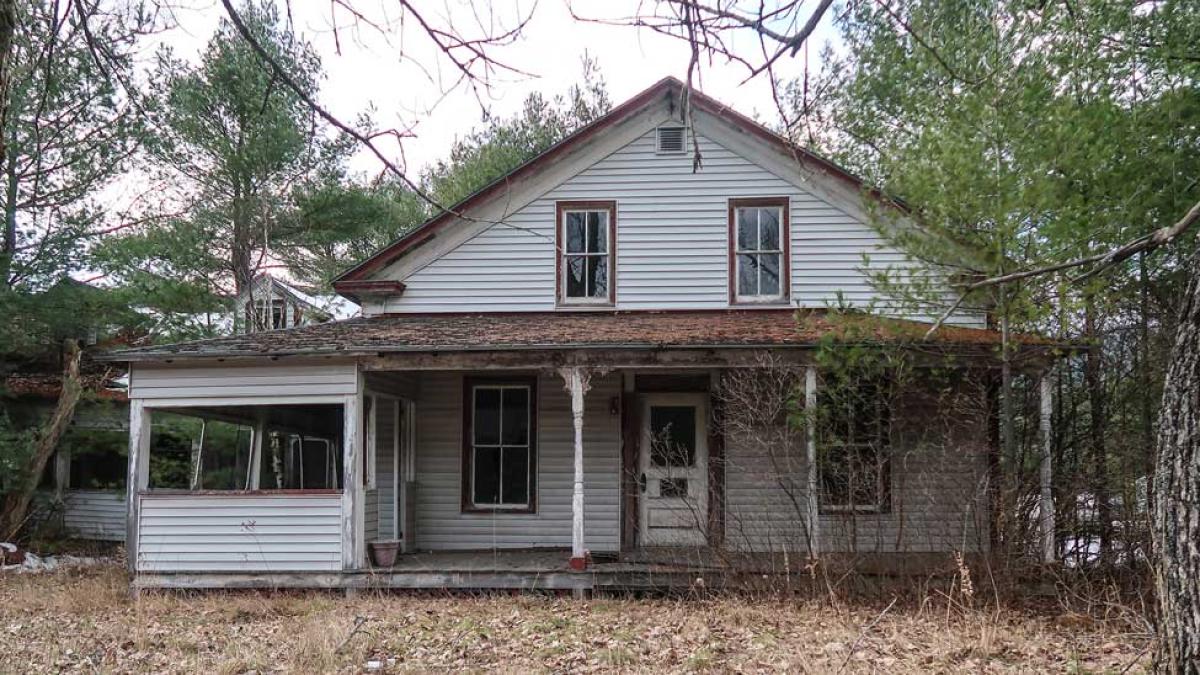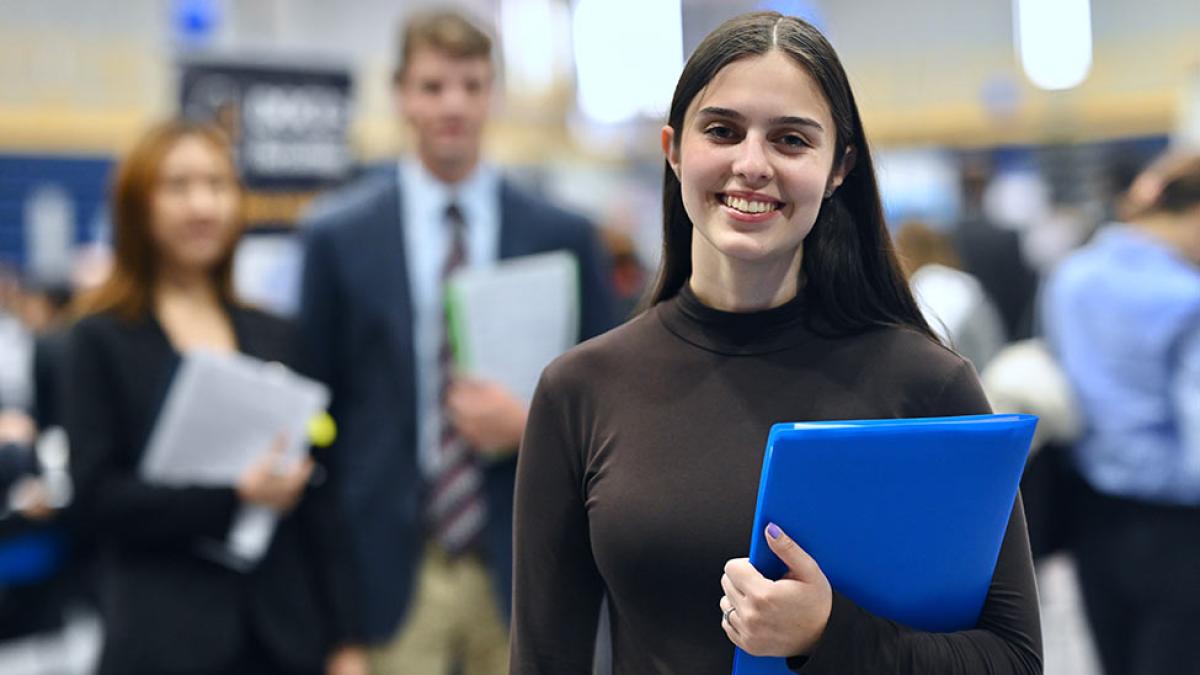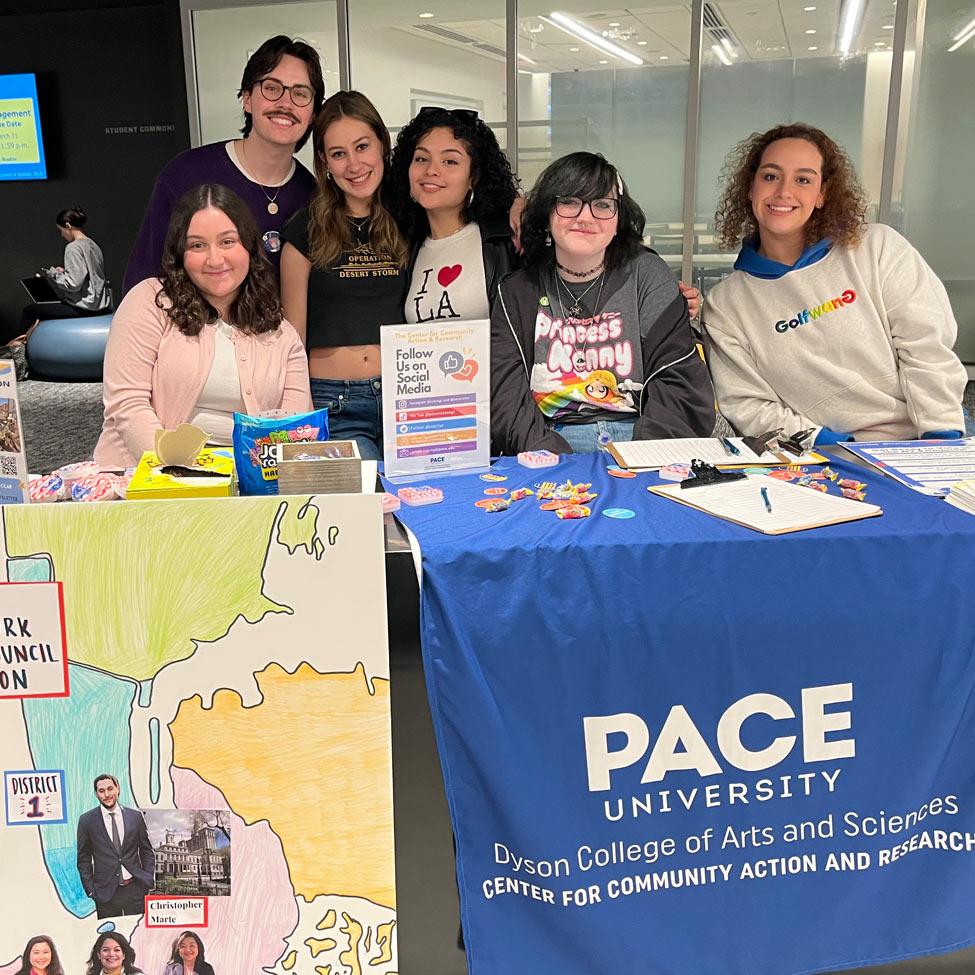
Pace University Signs Education Partnership Agreement with NSA
Pace’s Seidenberg School of CSIS recently signed an Education Partnership Agreement (EPA) with the National Security Agency in an effort to develop a pipeline of science and technology talent for possible national security challenges.
A Shooter's Parents Were Convicted of Manslaughter. What Happens Next?
Elisabeth Haub School of Law Professor Linda Fentiman speaks to The New York Times about the prosecution of James and Jennifer Crumbley that could affect the courts and parenting in the wake of the worst school shooting in Michigan history.
Pace University And The “Pace Difference,” Real-World Learning With A New York Advantage
Pace President Marvin Krislov and Vice President for Enrollment and Placement, Robina Schepp are featured on the Visionary Voices: The College President’s Playbook podcast series. Together, they provide insights into how Pace University embodies "The Pace Difference" and drives its commitment to student success.
Redefining Voting Access for Pace Students
New York legislation has paved the way for easier voting access among college students. Discover how Pace students benefit from this game-changing law, get registered to vote, and leverage campus resources for active participation in democracy.
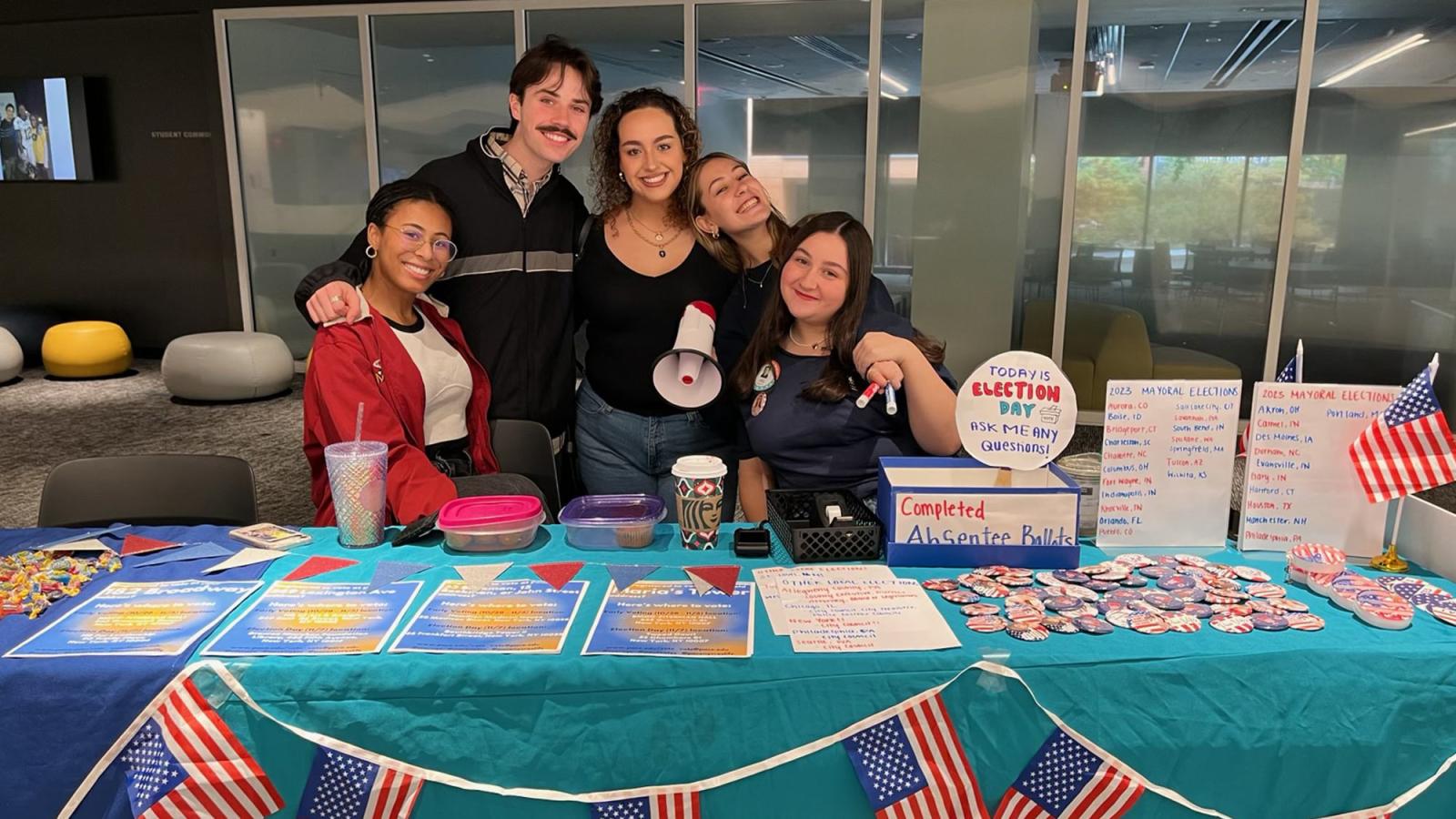
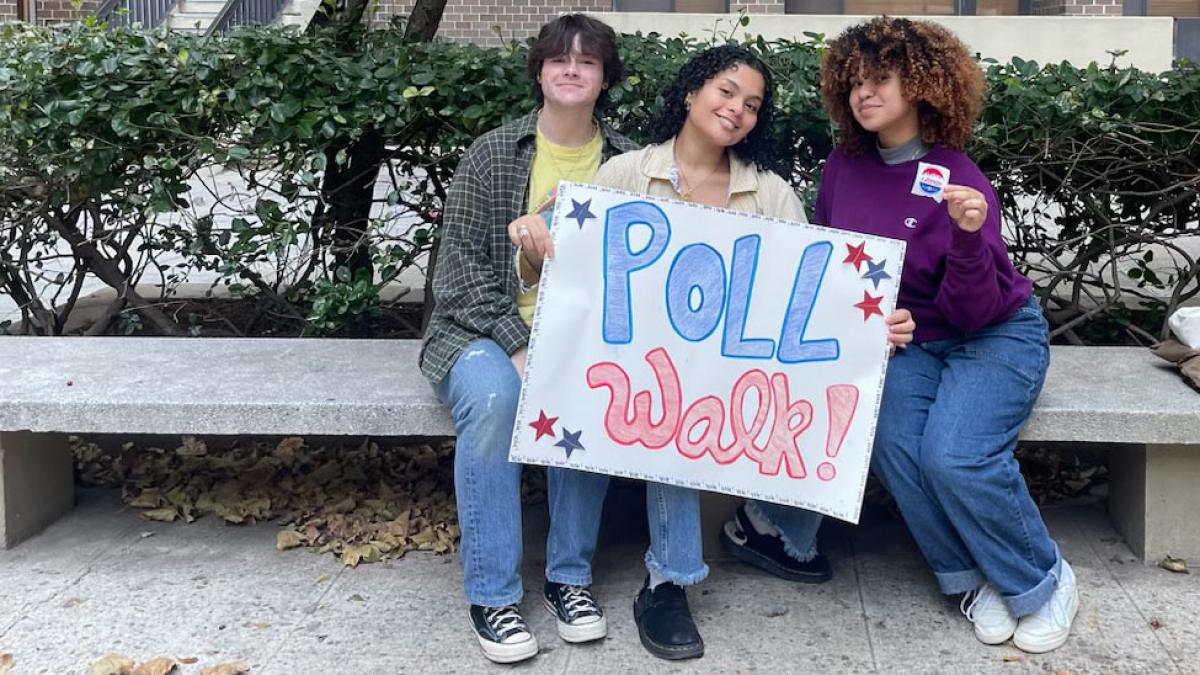
On April 2, for the first time ever, Pace students will have the opportunity to cast their votes directly on campus. Thanks to the diligent efforts of student leaders and organizations like the Center for Community Action and Research (CCAR), the Student Center at One Pace Plaza in NYC and Willcox Hall in Pleasantville will serve as the designated polling place for the New York Presidential Primary. This development marks a significant milestone in enhancing voter accessibility and engagement among college students.
CCAR student leaders, supported by the Andrew Goodman Foundation, have tirelessly advocated for this change to address the challenges faced by residential student voters. Despite high voter turnout rates among Pace students, logistical hurdles such as split polling places have hindered full participation. Now, with the establishment of an on-campus polling site, students can easily exercise their voting rights without the hassle of navigating multiple locations.
“Finding and getting a voting site can be difficult and filled with unforeseen bumps along the road. Having a campus voting site finally accomplishes for Pace students what student voters across the nation have been wanting for years–accessibility right at their front door.”
The significance of this achievement extends beyond the Pace Community. It aligns with a statewide initiative following the 2022 law mandating on-campus polling places for institutions with over 300 registered voters, aiming to eliminate campus gerrymandering. Through collaborative efforts with organizations like the Andrew Goodman Foundation and ALL IN Campus Democracy Challenge, CCAR is part of a broader network advocating for increased on-campus voting options across New York.

Assistant Director of CCAR Erin Mysogland emphasizes the importance of making voting accessible and enjoyable for students in a recent Inside Higher Ed article. With the convenience of voting in between classes or with friends in the familiar setting of the Student Center, barriers to participation are lowered, fostering a culture of civic engagement.
“It’s where most student events are, most big lectures,” she said. “For us, our consideration was, this is where students are used to going to events, fun events, events for class, so this helps fold it into their normal day.”
Jasmine Cintron, one of CCAR's Andrew Goodman Foundation Ambassadors, underscores the significance of accessibility. “Finding and getting a voting site can be difficult and filled with unforeseen bumps along the road. Having a campus voting site finally accomplishes for Pace students what student voters across the nation have been wanting for years–accessibility right at their front door.”
The process of establishing the on-campus polling site has been meticulous, involving thorough inspections by the Board of Elections to ensure compliance with accessibility standards and logistical requirements. From testing Wi-Fi connectivity to measuring indoor and outdoor spaces, every detail has been carefully considered to guarantee a seamless voting experience for Pace students.
In essence, the introduction of an on-campus polling place represents more than just a logistical achievement; it symbolizes a commitment to democratic principles and the empowerment of student voices. By removing barriers to participation and fostering a culture of civic responsibility, Pace University sets a precedent for universities nationwide, demonstrating the transformative impact of prioritizing student engagement in the democratic process.
Get Registered to Vote
All residential students have the right to register to vote either with their residence hall address or with their home address. If you’re planning on voting in the New York Presidential Primary, you must be registered by March 23. Pace students can register online to vote in any state, at an upcoming CCAR event, or by visiting the CCAR office on their campus:
NYC Campus
41 Park Row, Room 404
Pleasantville Campus
Choate House, Room 51W
More from Pace
Pace graduate student Shweta Rashmi shares the story of her enlightening transition from media and journalism in India to marketing in New York City, discovering new passion and purpose within Pace's supportive community.
Clandestine methamphetamine labs: they’re a growing problem and can be a nightmare for unsuspecting homeowners. Dyson Professor Karen Caldwell and student researchers such as Morgan Amos are on the case, aiming to develop practical and effective remediation solutions.
Ever wonder how Pace graduates consistently outperform the national employment average? It's all about starting early and making the most of Career Services. Check out our recent employment stats and get quick tips on getting career-ready.
Developing a Dazzling Business
Many first-year students focus on adapting to their new college environment, but Isabella Betancourth jumped right in, going after opportunities that would make her a better business owner. From joining the Entrepreneurship Club to using on-campus resources to learn about strong business practices, Isabella is on the right path to grow her business, Isabella’s Jewels – and she’s just getting started.


Isabella Betancourth
Class of 2027
Currently Studying: BBA in Finance
Member Of: Entrepreneurship Club
Pronouns: She/Her
Many first-year students focus on adapting to their new college environment, but Isabella Betancourth jumped right in, going after opportunities that would make her a better business owner. From joining the Entrepreneurship Club to using on-campus resources to learn about strong business practices, Isabella is on the right path to grow her business, Isabella’s Jewels – and she’s just getting started.
Why did you choose Pace University and the Lubin School of Business?
Growing up in New Jersey, I constantly visited Manhattan, which led me to fall in love with the city. There are so many fun things to do and places to discover, so it was a no-brainer to continue my studies at Pace University. As for studying at Lubin, attending a business school that is well known for preparing their students for the real world was important to me.
Most of all, being in the heart of the Financial District as a finance major is incredible, and I can’t wait for the opportunities I will have over the next few years.
How have clubs on campus helped enrich your student experience?
So far, I’ve joined the Entrepreneurship Club, which really spoke to me and my passions. This club has introduced me to Pace University’s Small Business Development Center and Pace Entrepreneurship Studio here at Pace - both of which I’m excited to start working with and use their resources to grow my business.
Tell us about your business, Isabella’s Jewels.
Isabella’s Jewels is a fine jewelry company featuring 925 Sterling Silver and 14k gold vermeil pieces. Our website features a high-quality curated collection of trendy and timeless accessories at an affordable price point. Isabella’s Jewels pieces are designed in New York City and imported from Italy, ensuring that each piece is not only a style statement but also a lasting investment intended for everyday wear. Our pieces are available online at Isabellasjewels.shop, as well as through pop-up events through partnerships with small businesses such as boutiques, salons, and workout studios across New Jersey and New York.
What motivated you to launch Isabella’s Jewels?
I’ve always been very entrepreneurial - it’s how I express my creativity. Ever since I was young, I would launch little businesses that revolve around the latest trends. It went from selling handmade rainbow loom bracelets, stickers, and lip scrubs in my elementary school years to shipping hundreds of custom college apparel pieces across the country through my last business, Icon Sweats. Using my experience and funds from four years of growing Icon Sweats, I decided I wanted to start something new and chose jewelry, something every woman wears and loves.
How have your classes at Lubin helped you grow your business even further?
Although I only just finished my first semester here at Pace, my professors and the courses I’ve had have helped me strengthen the business foundation I already had. I’ve been able to use the concepts I’ve learned to make better business decisions. Mastering Excel spreadsheet skills in my Intro to Computing course has also made a big impact. Excel has helped me organize my business materials and inventory in a way I had not been introduced to before!
What has been your favorite opportunity at Pace?
Being on the Dean’s List with first honors after my first semester was amazing. Hard work pays off! Also, this experience - having a profile written on me for the Lubin School of Business - is such an honor. I’m grateful for the recognition and support that Pace University is giving me and my business.
Do you have any advice for other Lubin students?
Follow your dreams, stay focused, and make connections. People from all over come to New York City to pursue their dreams. There are so many opportunities and resources here, and you should go for it. Stay focused, show up to class, and take your coursework seriously because there are no do-overs once these four years pass. Most importantly, make connections. You are in the business capital of the world, and the people you know can make a difference in your career.
What does #LubinLife mean to you?
To me, #LubinLife means embracing the community around you at Pace University in order to succeed. Students appreciate learning from their diverse classmates, taking advantage of the business opportunities around them, and challenging themselves in order to grow into better people and professionals.
Connect with Isabella:
- Connect with Isabella on LinkedIn
- Follow Isabella’s Jewels on Instagram
- Shop Isabella’s Jewels (Use code ‘PACE’ for 10% off)
- Follow Isabella’s Jewels on TikTok
The Psychologist-Artist: Founder of New York School of the Arts Betsy Lawrence '95, PsyD, Uniquely Merges Art and Helping Others
Betsy Lawrence '95, PsyD, intertwines psychology and the arts, founding the New York School of the Arts while balancing a unique career and leaving a lasting impression on her community.
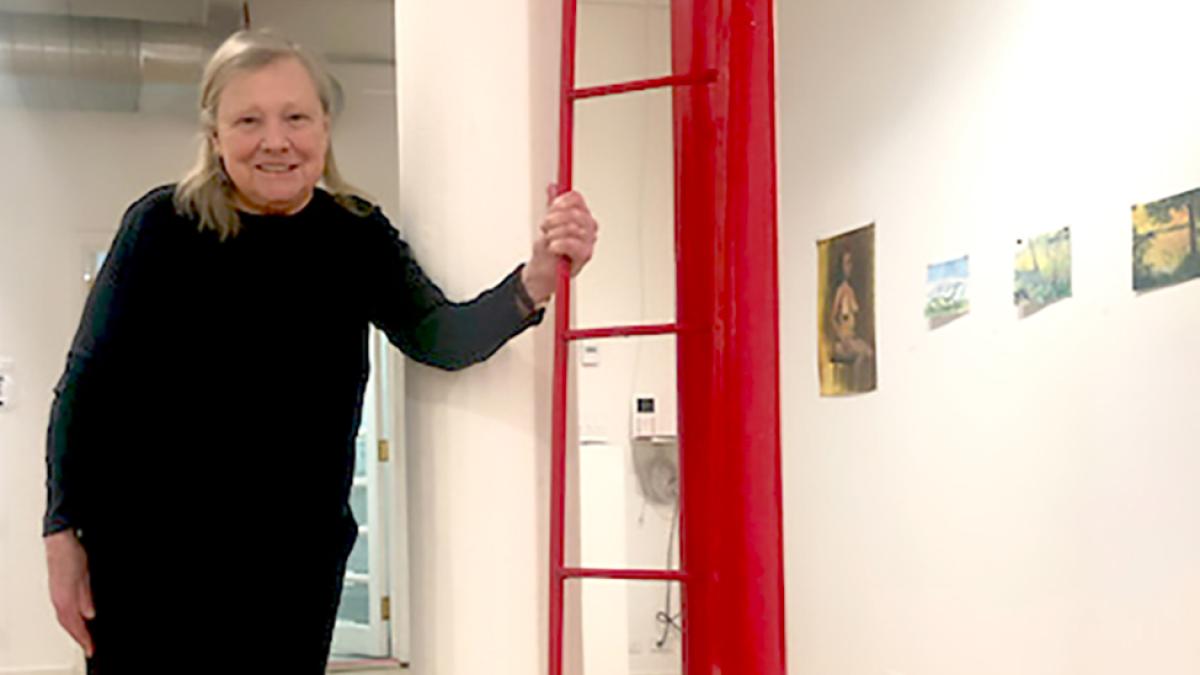
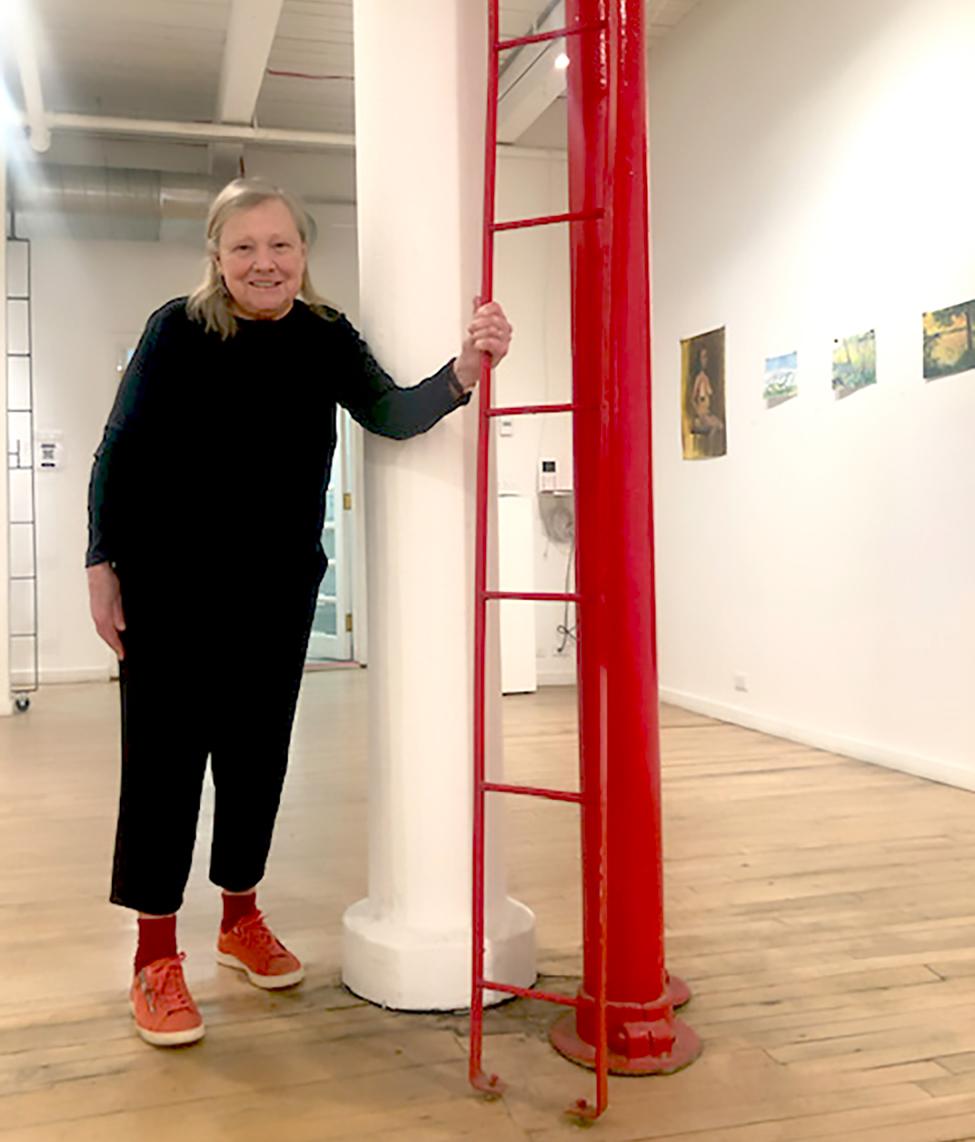
Betsy Lawrence ’95, PsyD, has had a hunger for learning ever since she was a child, a quality that would propel her throughout both her personal life and her extraordinary dual career as a psychologist and psychoanalyst, as well as founder and president of New York School of the Arts (NYSA), a not-for-profit arts school and cultural center in New York City.
In the early years of her education, classes in art and mathematics that interested Lawrence were not largely available. With college on the horizon, she also faced a lack of precedence in her family of women attending higher education, let alone earning a doctorate. However, Lawrence’s deep desire to learn–and to help others with that knowledge–coupled with meeting supportive people along the way guided her to achieve an education that supported her dreams and passions.
Early training
Lawrence’s entry into the field of psychology was completely unexpected.
With an undergraduate degree in both Greek and Latin, and master’s in childhood special education, it was during her work teaching language and reading to children with special needs at St. Luke’s Hospital in Manhattan that she first encountered psychologists and psychiatrists. It was at a time during which terms such as dyslexia and attention deficit disorder were relatively new, and many questions existed in the medical community on treatment. Lawrence was both concerned and curious; she saw young patients placed on medication and wanted to delve deeper, to know more. It was then that she decided to become a child psychoanalyst.
Lawrence attended evening classes as part of the School-Clinical Child Psychology PsyD program at Pace, one she was drawn to because of its flexibility and dual focus. Over the years, she would work closely with her faculty mentor, Barbara Mowder, PhD, leading to a dissertation on educators’ perceptions of parental roles, and put theory to practice in externships, most prominently at Mount Sinai Medical Center in Manhattan, where she also did a post-graduate fellowship in neuropsychology. It was an exciting time and she felt that her mind could grow with the supportive foundation she found at Pace.
“I think that if you ask students, they will agree that Pace faculty are very, very open to ideas,” said Lawrence. “Sharing is encouraged, and people here tend to have a good heart, too. You didn't have to pretend you knew everything. There was help, and this was really quite special.”
She holds fond memories of students supporting each other based on their own strengths: for example, Lawrence would be approached by the more mathematically-inclined students for assistance with writing (a skill which she highly credits another New York Psychology department faculty mentor, Florence Denmark, PhD, with helping her to develop), and they, in turn, would guide her on numbers-based research that was a key part of the program.
Creating opportunities
Although Lawrence would go on to a successful career as a psychologist and psychoanalyst, including in private practice guiding parents through their children’s developmental stages, she was ever an artist at heart. She enrolled in an intensive art program at the historic National Academy, an art school, museum, and association of professional artists in Manhattan near her work. A dark reality, however, had loomed: the school’s closure, and with it, job losses for the director and as many as 40 faculty.
It was a unifying neighborhood staple, and she could not simply stand by idly.
Lawrence knew both artists and individuals familiar with buildings in Manhattan. So, with a combination of drive, a can-do spirit, and a bit of luck, she worked quickly to open a new institution for the art community to continue, the New York School for the Arts. Through it, she has been able to provide others with what she always deeply wanted for herself: the chance to realize their unique artistic talent, something she feels everyone possesses and just needs to be nurtured.
She describes it as a “magical place” where one can palpably feel the creative process within which others are engaged and to be in this “extraordinary walk” with them. (Some patrons have even shared with Lawrence that her school’s pivoting to online learning during the COVID-19 pandemic, followed not long after by a resumption of classes, had “saved their life”).
Just as an expression of ideas was so openly encouraged in her days as a Pace student, at NYSA, the faculty, diverse and esteemed professionals in their own right, provide students with ideas on experimentation—for example, on how to work with materials—then allow them the space to take that where they wish to. There is also another similarity to Pace: the small classroom sizes encourage a more social, collaborative environment.
“I was good at art. I just didn’t have the opportunity to do it. But it doesn’t mean that, because you haven’t done it, you can’t,” she said. “You never stop learning.”
The liberal arts in life
Today, Lawrence’s psychology practice is part-time, and so she has been able to devote more energy to her artistic endeavors. She now sees herself as, first, a watercolor artist, and second, a sculptor, working with terracotta to bronze. Thematically, she loves to incorporate the mythological as well as symbolism in her art, as she feels that stories in literature have as much relevance today as in the past.
She also credits her background in Greek and Latin as giving her a greater appreciation for these stories, as well as being able to read “almost anything” due to the roots of words of ancient languages finding their way into more modern ones and modes of expression.
“All these wonderful arts—including languages—just bring people together.”
Giving back
Today, we can also find Lawrence giving back to her community in another, unexpected way.
An award-winning sailor, she and her husband have found a way to help veterans of war with Post Traumatic Stress Disorder (PTSD) heal from their trauma with the use of sound and movement from wind created by sails. Working with several foundations, it was simply an idea inspired by her psychological training at Pace that launched and has made a real difference in people’s lives.
Lawrence, who credits sailing as teaching both self-reliance and teamwork, takes the opportunity to use maritime language to similarly reflect on her days as a Pace student:
“I'm a sailor. I got on the boat, and it was the right boat, and we sailed together.”
Top 12 Fastest MBA Online Programs In The World
Pace is ranked among the top 12 fastest growing MBA online program in the world.
Pace Law Professors Randolph McLaughlin And Betty Lewis Featured In Civil Rights Documentary
Pace Law professors Randolph McLaughlin and Betty Lewis are featured in civil rights documentary.
Pace Law hosts National Environmental Law Moot Court Competition
Association of American Law Schools reports the Elisabeth Haub School of Law hosted the National Environmental Law Moot Court Competition, the event in person for the first time in four years.
"Bizarre": Legal Expert Says Trump's New Hush-Money Trial Defense Is "Nonsensical And Laughable"
Professor Bennett Gershman speaks to Salon.com about Trump’s upcoming New York hush money trial.
